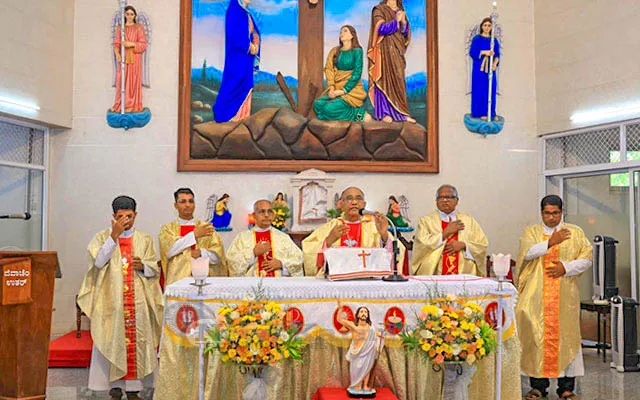Indian Supreme Court recently surprised observers by upholding a challenge by traditional religious campaigners who believed that “gay sex was against the order of nature” contrary against the observers point of view that the SC ought not have struck down by the 2009 Delhi high court judgment.
 Rights groups say that the law known as Section 377 for its place in a 150-year-old Indian penal code, had been used for decades to harass homosexuals. People across India were shocked by the decision. Most legal experts and activists had expected the countrys highest court to uphold the landmark decision, which had been seen as a crucial first step in empowering Indias gay community.
Rights groups say that the law known as Section 377 for its place in a 150-year-old Indian penal code, had been used for decades to harass homosexuals. People across India were shocked by the decision. Most legal experts and activists had expected the countrys highest court to uphold the landmark decision, which had been seen as a crucial first step in empowering Indias gay community.
Marriage is a fundamental liberty right of individuals; it also involves an equality dimension. Should we think that these individuals have a right to marry as they choose or should we think that they don’t have the right at all, given the nature of their choices? The law forbidding such union is supported by a strong public interest..!
“The judgment would need to be studied, understood, internalized,” said Manish Tewari, Information and broadcast minister of India, in a televised interview. “And if at all there is something Parliament needs to do in this matter, Parliament would definitely look into it.”
“I think this is a dark day for the constitution,” said Gautam Bhan, a gay-rights activist , “Never before has a Supreme Court taken away an expansion of rights to Indian citizens and reversed a move toward inclusion.”
“I am more disappointed with this judgment. It feels very intolerant and violate of basic human rights. Its a shame,” superstar Aamir Khan expressed on Face book.
Actor John Abraham tweeted: “India has harbored archaic prejudices once again…The Supreme Court has criminalized homosexuality… Shame.”
Meanwhile in Australia, the court was putting its own local brakes on the evolutionary process, Australian high court, which overruled a local law passed in the Australian Capital Territory in October to allow same-sex marriages in Canberra. As a result, the several dozen couples who had solemnized their relationships find their marriages annulled.
In both cases, it is true, the hopes of campaigners that courts might offer a more favorable route for same-sex rights, a hope bolstered this year by the US supreme court’s decision to overturn the 1996 defence of marriage act – has taken a hit.
On the other hand, in both India and Australia (unlike the US) the rulings were based on constitutional rather than equality law – a serious blow in both cases, but at least not a direct challenge to the principle of relationship equality.
The larger question is whether these setbacks represent something more widespread – perhaps even a global counter-attack against same-sex marriage and same-sex love in general.
Traditional religious movements, often well funded and highly motivated, play a crucial role. Against that, the progress of same-sex marriage rights is steady and increasingly global, in spite of the recent setbacks, and it should also be recognized that 18 African countries and 20 Asian ones (including China) at least do not criminalize gay sex.
The course of progress is ultimately for each country to settle at its own pace. But there is no doubt that international pressure and example matters, in this as in all other fields of human rights. After all marriage and sexuality is an individual right!

















